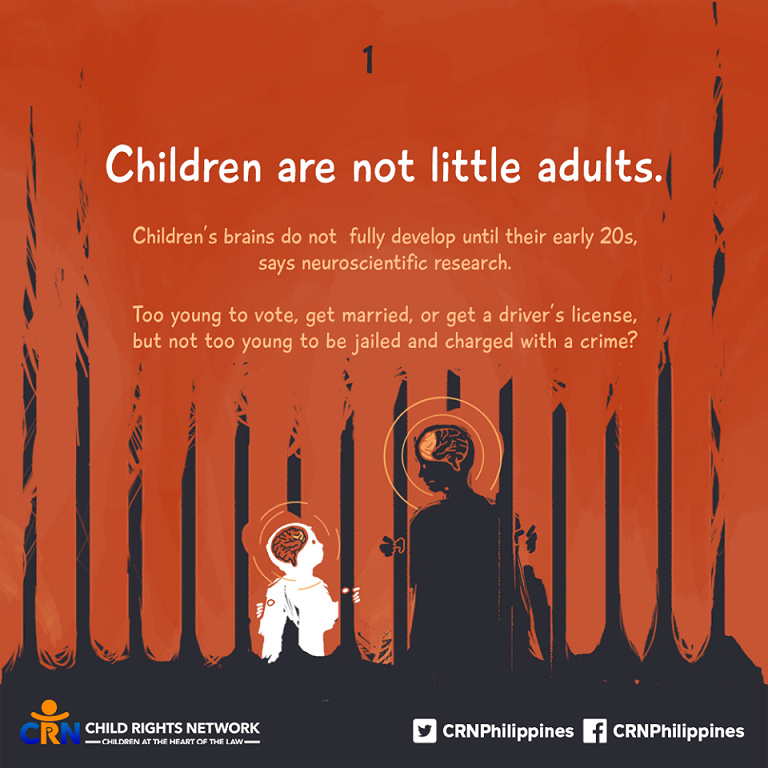
Many of us have resigned to our fate of having Duterte as president until June 30, 2022.We will survive, we tell ourselves.
But not many of our children.
The House of Representatives passed on second reading last week a bill that wantsthe minimum age of criminal responsibility (MACR) in the Philippines from the current 15 to 12 years old.
They changed the word “criminal” to “social”, like coating poison with sugar.
House Speaker Gloria Arroyo tried to deflect the public’s outrage over the measure by pointing to Duterte, whose wish, she implied they were merely fulfilling. “Because the President wants it,” she said when the discussion was still on nine years old as the minimum age.
It’s almost a done deal in the House. Oriental Mindoro Rep. Salvador “Doy” Leachon, the chair of the House justice panel said they expect to pass the bill on third reading before Congress adjourns on February 7.
The arena now is the Senate, where Senate President Tito Sotto has filed a bill with 12 years old as the minimum age of criminal responbility. Senator Richard Gordon, chair of the Senate justice committee is leading the charge against the future generation for Duterte.
There’sa petition initiated by Child Rights Network and Philippine Action for Youth Offendersand being circulated in Change. Org appealing to our legislators to withdraw the controversial bills.
The reasons are compelling:
1. Children are not little adults.
Scientific research shows that “children and adolescents differ significantly from adults in decision-making, propensity to engage in risky behavior, impulse control, identity development, and overall maturity.” (Psychological Association of the Philippines, 2016)
Hence, a child should not be held to the same standards as adults. Too young to vote, get married, and have a driver’s license but not too young to be charged for a crime and be held in jails?
2. It will not result in lower crime rates.
According to the Philippine National Police, children commit only 1.72 pecent of total crimes in the Philippines. Most are petty crimes like theft, which is often linked to poverty.
3. Lowering the minimum age of criminal responsibility will not stop syndicates from using children.
It will encourage syndicates to use children younger than 9 or 12 years old.
4. The Juvenile Justice and Welfare Act of 2006 does not need to be amended. It needs to be fully implemented.
The law already provides guidelines on how children who commit crimes should be handled. Contrary to popular belief, children who commit serious offenses are held accountable. But instead of receiving harsh punishments, the child is placed in a youth care facility or Bahay Pag-Asa to undergo intensive intervention programs supervised by a multi-disciplinary team.
5. Jail is no place for a child.
Due to lack of youth care facilities, children will most likely end up in jails where they may be subjected to violence and abuse. Detention should be the last resort, not the first and only option.
Do we criminalize and punish children just because we have failed our duty or responsibility to fully implement the law?
Even the Department of Social Welfare and Development has recently released a statement saying:
“A lower age of criminal responsibility results in more children being detained, substantially higher cost of public expenditure, and an even higher social cost of re-offending and graver offending, which simply demonstrates that such measure is not cost-effective.”
The petition said what members of Congress and duty-bearers in the government should do is to:
1. Punish the crime syndicates who take advantage of children, not the children who need to be rescued, supported, and rehabilitated.
2. Push for the full and effective implementation of the law so that both children who commit crimes and their victims are assisted and supported.
3. Instead of lowering the MACR, support local government units in providing prevention, intervention, and diversion programs for children.”